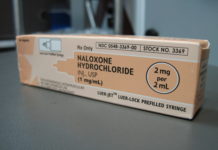Mental Health is the mental state of mind or a lack of mental disorder. It is defined as the mental state of a person who is “performing at a satisfactory degree of emotional and/or behavioral adjustment.” In its general definition it can be considered an umbrella term that covers all the mental conditions, including personality disorders such as Bipolar II (manic depressive disorder) and psychotic disorders such as schizophrenia, anxiety disorders like Post-Traumatic Stress Disorder and depression. A patient with one or more mental illnesses may also have problems that can affect his or her relationships, work, education and other activities of daily living (ADL).
It is very important to understand what mental health means in a holistic approach. Mental health, as we know it today, does not only deal with mental illnesses; it can also be defined as having a good social and emotional life as well. This would include the ability to live a life without worries and stress about everything. A person with a good mental health may have a good relationship with his or her family, friends and colleagues, as well as being able to perform at work without any problem whatsoever. A person may also be able to perform at school successfully and enjoy the pleasures of life without any difficulty at all. People may also have good health and well-being and not have any mental illnesses. However, people who have serious mental illnesses like schizophrenia, bipolar II and Post Traumatic Stress Disorder may have a very hard time in daily life.
Mental disorders are treatable and can be treated successfully with proper treatment. Psychotherapy, counseling and psychotherapies are the main treatments for people with mental disorders. Cognitive behavioral therapy is one such treatment that is highly successful and effective and can significantly reduce the symptoms of both schizophrenia and bipolar II. Psychotherapy and counseling are also highly successful for people with anxiety disorders.











